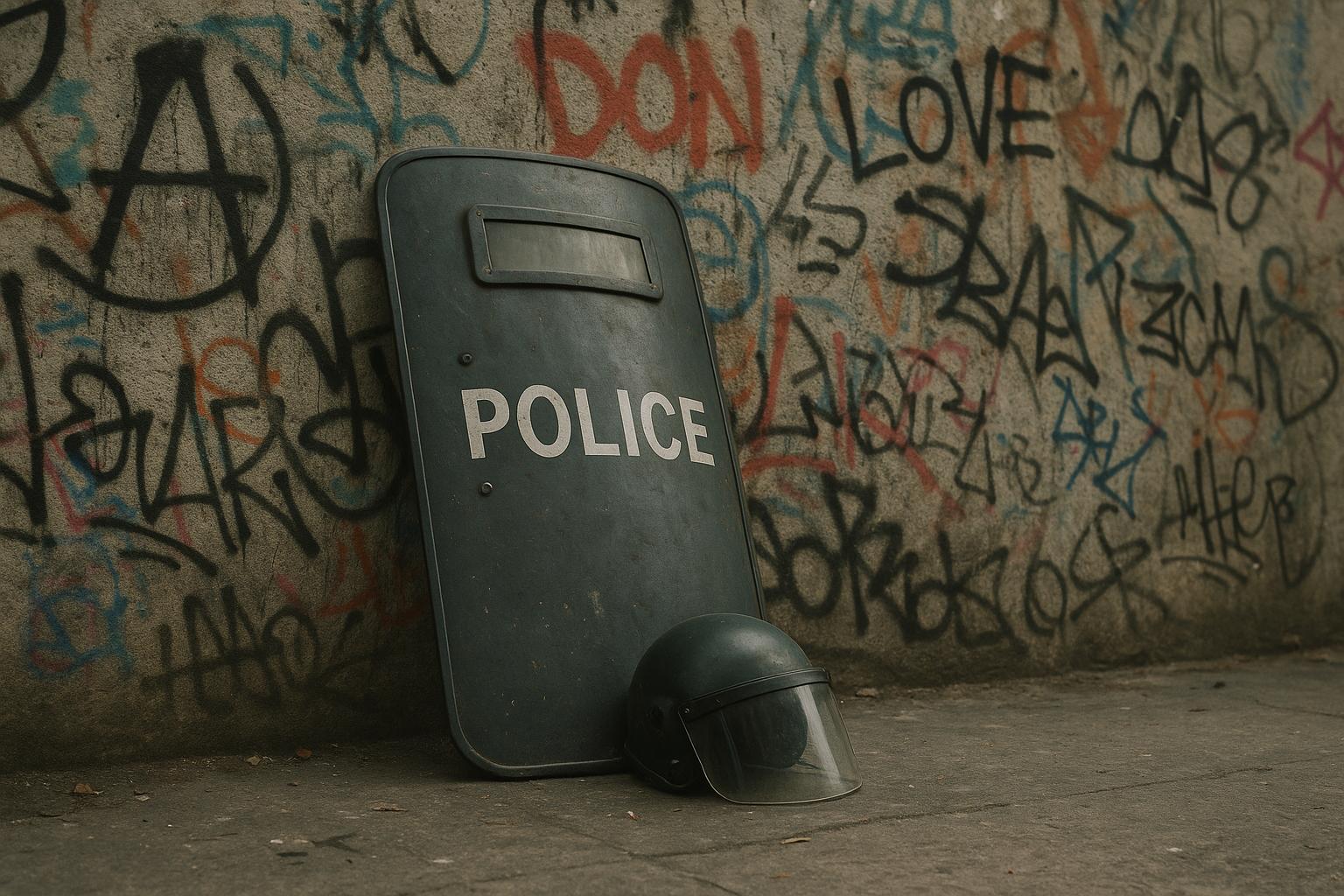The Metropolitan Police have firmly denied allegations of aggressive behaviour by officers during protests at this week's Defence and Security Equipment International (DSEI) arms fair held at the ExCel centre in Newham, London. The four-day event, attracting military buyers and defence contractors from across the globe, was met with sizeable demonstrations, particularly focused on the participation of over 50 Israeli arms firms despite a UK government ban on Israeli officials.
Footage circulating from the opening day showed physical confrontations between police and protesters, prompting criticism from figures such as Green Party London Assembly Members Zoë Garbett and Caroline Russell. Garbett described police actions as a "disgrace," highlighting aggressive tactics that resulted in injuries and the removal of at least one protester on a stretcher. She contextualised this as part of a broader pattern of increased policing and a clampdown on dissent. These concerns resonate with longstanding criticisms of the Met’s approach to protests, notably the controversial policing and heightened security costs observed during prior DSEI events, with campaigners in 2019 decrying what they called an “increasingly authoritarian” stance that saw a doubling of police presence and over 120 arrests.
Caroline Russell also condemned the arms fair for allowing the display of weapons linked to global suffering, including components of cluster munitions banned under international law. Green Party MP Sian Berry echoed these points, expressing outrage at the public exhibition of such weapons and asserting that they should never be traded in the UK. The Campaign Against Arms Trade intensified the controversy by filing a criminal complaint with the Met Police War Crimes Unit, accusing individuals at the fair of facilitating war crimes in Gaza by profiting from arms sales linked to severe humanitarian impacts such as hospital bombings and civilian deaths.
The Met Police spokesperson reported three arrests during the DSEI protests, all related to assaults on officers, with none of the officers sustaining serious injuries. This official account contrasts with the protesters' depiction of police tactics and feeds into wider public scrutiny of the Met’s conduct. The force has been at the centre of multiple allegations concerning internal culture and policing practices in recent years. Investigations by the Independent Office for Police Conduct have previously revealed disturbing patterns of misogyny, discrimination, bullying, and sexual harassment within the force. Moreover, tens of thousands of complaints against officers have been recorded, covering a broad spectrum from racism to excessive use of force, with the Met acknowledging the need to root out corruption and improve conduct standards.
The wider social and political context adds further layers to the narrative. The Met has also faced criticism related to political pressures and handling of protests in London, including the organisation of pro-Palestinian demonstrations where violent clashes and hate crimes emerged as contentious issues. A governmental report found that political interference had improperly influenced police decisions, underscoring the challenges the Met encounters in balancing public order, political sensitivities, and rights to protest.
The ongoing controversy surrounding the DSEI arms fair and the Met Police's response reflects deeper and complex debates about accountability, policing standards, and the legitimacy of public protest in London. While the Met insists on the necessity of their policing measures and the propriety of their officers’ conduct, activists demand greater transparency and restraint, especially in the face of events linked to global conflict and human rights concerns.
📌 Reference Map:
- Paragraph 1 – [1], [2]
- Paragraph 2 – [1], [2]
- Paragraph 3 – [1], [2], [5]
- Paragraph 4 – [1], [5], [4]
- Paragraph 5 – [1], [6], [7]
Source: Noah Wire Services
